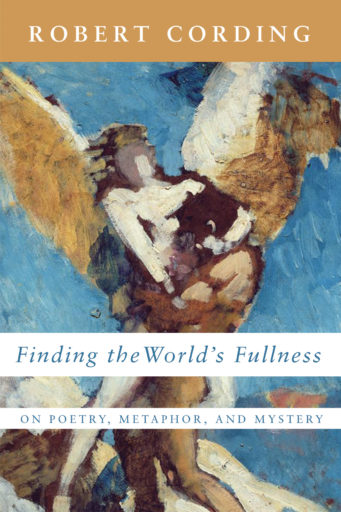

In monastic life, the first hour of daily prayers, Matins, roused the community to wake up. Wisely, the second hour was Lauds, which means praise—praise with that freshly awakened consciousness. In this way, such an attitude toward the world, seen and unseen, could be absorbed before breakfast.
| Hardcover | ISBN 9781639820221 | $25.00 |
| Paperback | ISBN 9781639820214 | $16.00 |
| eBook | ISBN 9781639820238 | $12.99 |
In monastic life, the first hour of daily prayers, Matins, roused the community to wake up. Wisely, the second hour was Lauds, which means praise—praise with that freshly awakened consciousness. In this way, such an attitude toward the world, seen and unseen, could be absorbed before breakfast. The poems in Long after Lauds continue that tradition, though outside a community, of waking up, reflecting, and discerning what there is to praise. And how. And whom.
Long after Lauds is a sojourn that takes the reader to unexpected places. In a voice that is funny, smart, and compassionate, sometimes all at once, the book constructs an introspective retrospective of a woman charged with insatiable curiosity and accommodating doubt looking over a life marked by significant changes: ex-nun, ex-wife, grandmother, professor emerita, traveler. Over decades, she acknowledges with gratitude her own daily shaping by students, grandchildren, rhinos, a public and private history full of saints and ain’ts. Beyond her earlier community chanting Lauds, she explores its resonance with wit and wistfulness and arrives at this truth: praise over time alters the one who gives it.
With signature wit, word-wariness, and warmth, Jeanine Hathaway brings us a new song in the lineage of Dickinson, Moore, and Bishop—a brilliant, cool surface that offers, even so, a profound, subterranean heat, evincing her continuing faithfulness to the embodied spirit that wishes to save us all. May it be blessed.
Scott Cairns, author of Anaphora
Soon after you open this dazzling book, you begin to feel it was written precisely and only to you. Not that the poems are confessional—they’re not—but their witty, antic wordplay and their music accumulate until they feel like a secret language between the writer and the reader. These poems are urgent. Their passion makes me see stitches, saints, Paris—almost everything—in a whole new way, teaching questions that may, in the end, be more significant than answers.
Jeanne Murray Walker, author of Pilgrim, You Find the Path by Walking
Jeanine Hathaway is the kind of religious poet I deeply admire—earthy, worldly, and of this world, a writer who works inside the contradictions of division and reconciliation, doubt and faith; but she is first and foremost a poet who knows her trade. Hathaway never takes herself too seriously and yet she is taken by her subject matter and by the serious question she has deeply lived—just how exactly are we being asked to live our lives?
Robert Cording, author of Only So Far